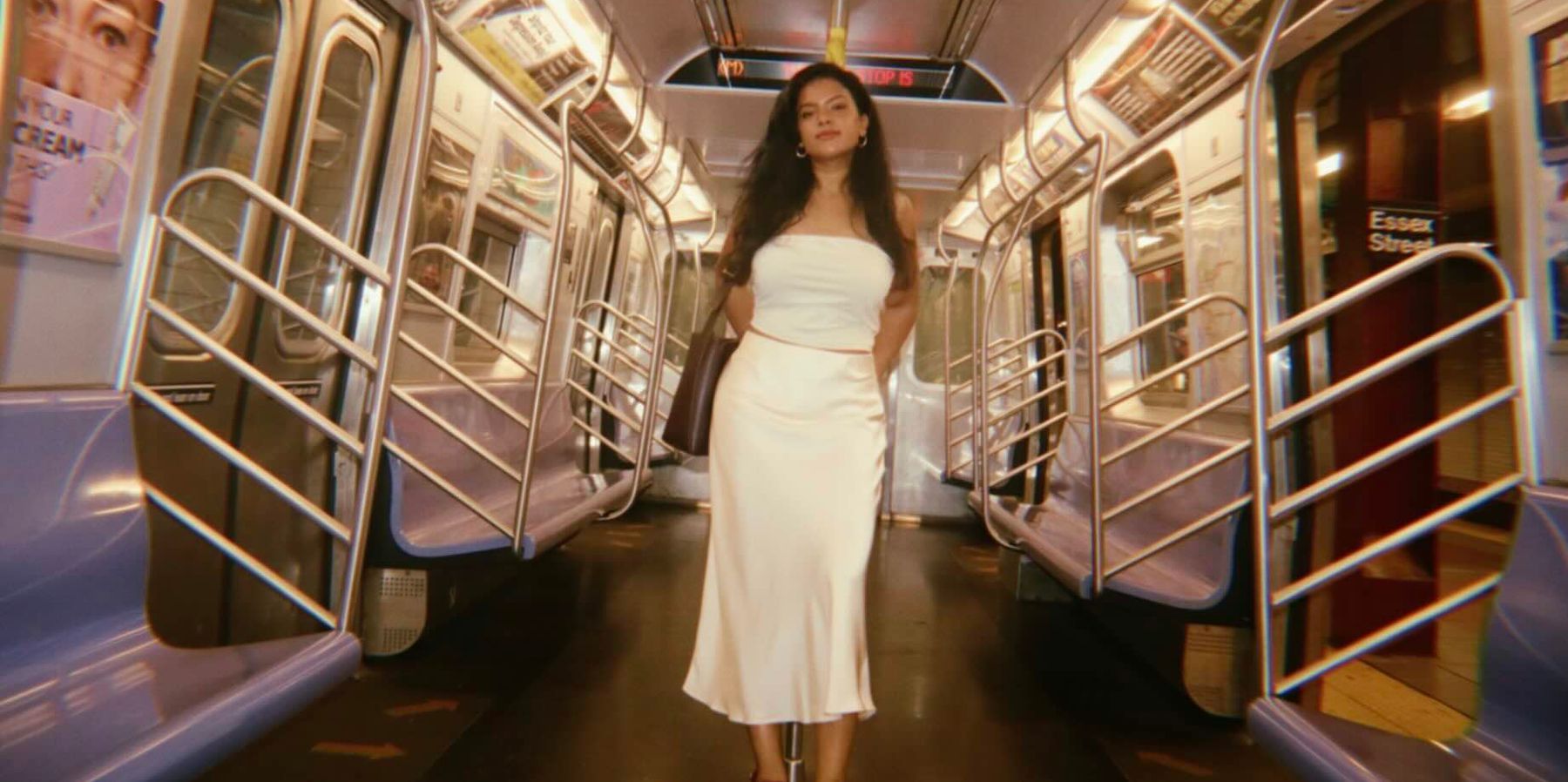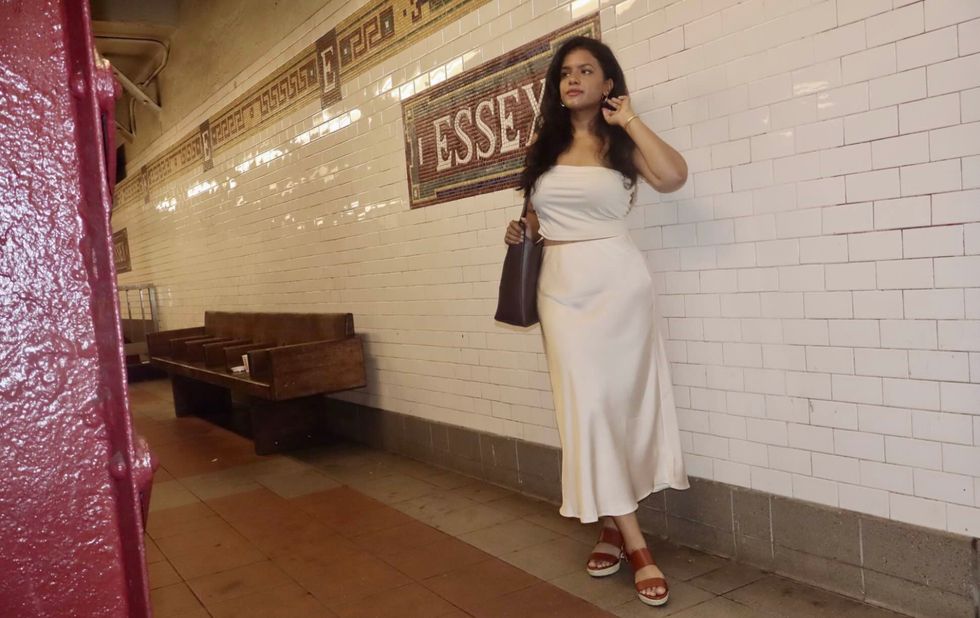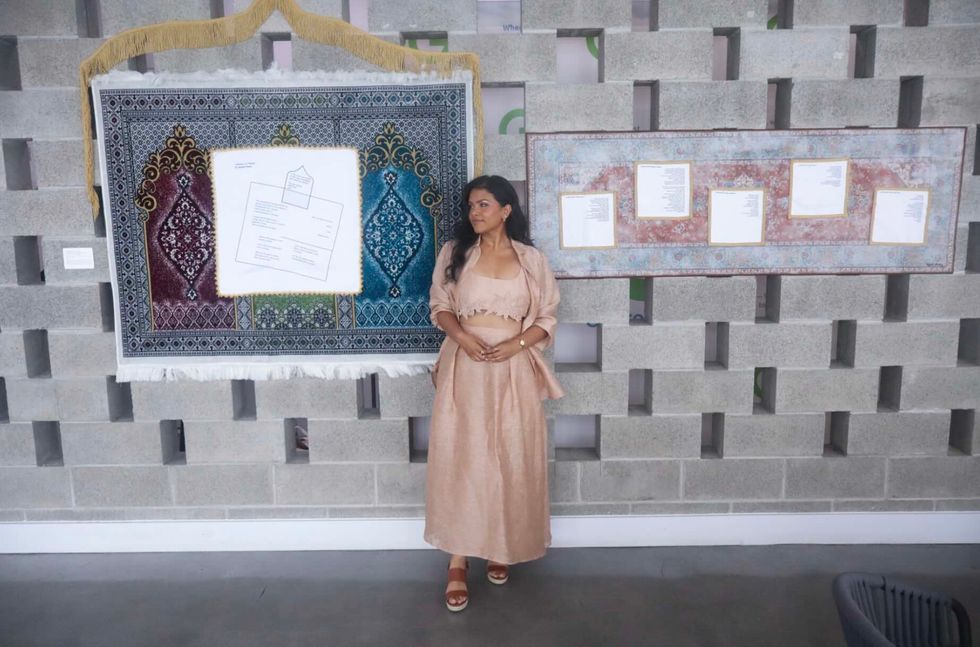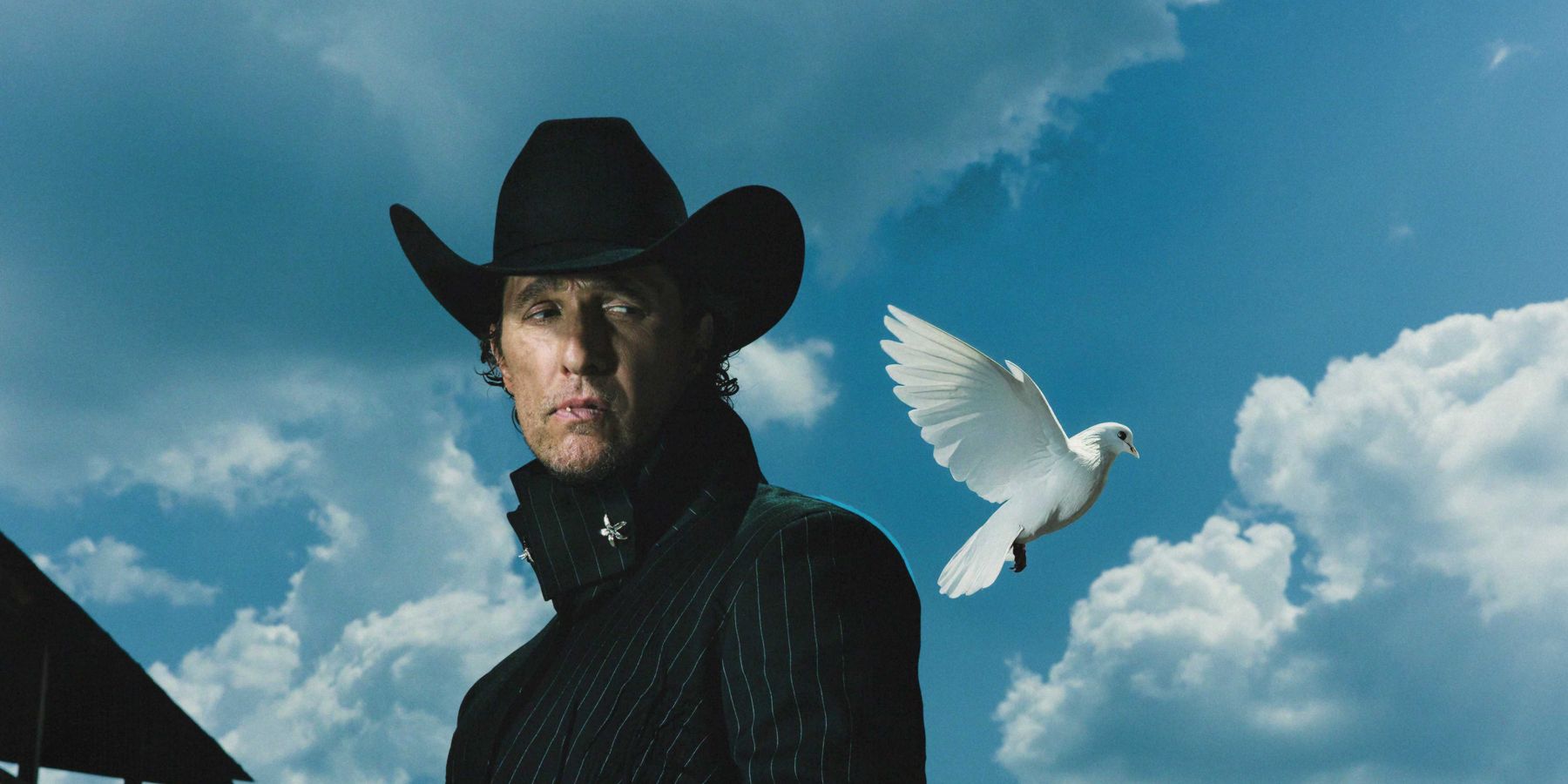
Elizabeth Shanaz wants to show us that poetry can exist in the most unlikely places. Her talent lies in revitalizing New York City's art spaces.
Elizabeth Shanaz, a poet and lawyer raised in Queens, is bringing a change in New York's literary scene with her "Revelation Series", featuring works like "If Allah Revealed Al Baqarah in Brooklyn" (Braided Way Literary Journal) and "If Allah Revealed Yasin in the Bronx" (The Literary Times).
These poems, part of a five-piece series (one for each borough) in her current visual poetry exhibition, reimagine Qur’anic chapters through modern New York life, posing the question: What would the Qur’an sound like if revealed in the city today instead of seventh-century Arabia?
Her work, a testament to her belief that the Qur’an’s messages remain relevant in current urban spaces, displays creative audacity that either clicks immediately or leaves people bewildered.
"This kind of creative undertaking is still a bit new in the Muslim literary canon," Shanaz explains with casual confidence.
“I am in no way suggesting that we rewrite religious text, just that we tap into our neuroplasticity to draw connections between the old world and the new, because the lessons and messages are still applicable.”
Her journey began in an after-school spoken word program at her junior high school in Queens, New York, which introduced her to poetry and provided a space to write and perform.
This experience lit a fuse that has carried her through various phases of her career as a writer across genres, while she juggles contract negotiations and poetry readings.
Pop Culture Meets Poetry
While most poets stick to safe territory, Shanaz writes about whatever moves her, spanning motifs of spirituality, Indo-Caribbean culture, romance, and popular culture.
Her poem "Making a Scene" (first seen in Blood + Honey Literary Magazine), focusing on Brown men in Western media with a nod to Netflix character Shooter Dival (played by Bollywood actor Ishaan Khatter), has been reprinted multiple times by content-exclusive literary magazines for its surprising tone and artfully striking message about Hollywood and race.
"People are surprised to see poems about popular culture because they don’t usually consider that an acceptable subject for traditional literature," she notes. "Poetry is everywhere. It’s in the media you consume, the conversations you overhear, and even in the trash rolling around in the street. I try to show that with my body of work and hope that people start looking at the world around them more poetically because of that," she reveals.
Her poem "Nusrat Fateh Ali Khan tries Instagram" (Zhagaram Literary) perfectly captures her ability to merge contemporary topics and classical themes with “traditional devotional music meeting algorithm culture,” querying what the late Qawwali singer’s Instagram would look like today.
Shanaz has also received critical praise for her lyric essay "Rawasiyah" (Brown Sugar Literary Magazine), exploring Muslim womanhood without the usual clichés, and her poem "What You've Done with the Place" (Wildscape Literary), which navigates reactions to the gentrification of her beloved hometown and earned Shanaz a nomination for the Best of the Net anthology in the category of poetry.

Gallery Circuit Ready
In addition to her written work, Shanaz has found ways to translate her writing into striking visual showcases.
Her visual poetry exhibitions, executed in collaboration with New York-based multidisciplinary artist Raqeebah Zaman, have been popping up across New York City, from a June showcase in Manhattan with Brown Girl Clubhouse to a July event in the South Bronx with the Oyate Group.
These aren't poetry exhibitions where everyone sits politely and snaps their fingers at the end of a verse. They are true visual art showcases with the added sparkle of Shanaz’s powerful poetry performances - an experience that harmoniously marries the visual, written, and performing arts.
Her visual poetry rewires your brain in real-time as attendees walk through poetry that is surprisingly housed in floor plans, line drawings, and even mirrors.
Her “Revelation Series” works especially well in this format, with cutting-edge literature doubling as a contemporary art piece, each poem stitched onto a second-hand Turkish motif rug.
The showcase has gallery-goers questioning everything they thought they knew about what belongs in art spaces, and what other possibilities remain untapped.
Beyond New York, Shanaz’s visual poetry exhibition has plans to hit multiple cities across the United States and internationally, with each city getting its own localized take on spirituality meets contemporary culture.
Algorithm Resistance
In an era where content creators worship engagement metrics like digital deities, Shanaz serves as a refreshing counterexample. She's not chasing viral moments or watering down her work for broader appeal. Instead, she's betting on authenticity and craft—frankly, a risky strategy in 2025's attention economy.
"The art has to be in the driver’s seat," she explains. "I think if you focus on making art rather than content, you find your true audience. That’s all I want. I want to find my people. I want them to find me."
Her Instagram certainly reflects this philosophy. No thirst traps, no desperate attempts at relevance, just consistent quality work that speaks for itself. It's the kind of approach that either builds a lasting audience or gets completely ignored by the algorithm gods. Jury’s still out, but she’s totally fine with that.
What's Brewing
Shanaz has two major projects in development that could cement her status as the voice of a generation (though she winces at the grandeur of the suggestion).
First up: a full poetry collection showcasing her complete range. The collection will contain visual poems, spoken word pieces, and various additional poetic formats, all filtered through her voice as a New Yorker, as a Muslim, and as a child of West Indian immigrants.
The second project might be even more intriguing: a romance novel featuring a Muslim couple navigating love in New York City. Given how she's already made a name for herself in poetry spaces, watching her tackle fiction is highly anticipated by the readers who know and adore her. What can we expect from this novel?
While she can’t share too much about it yet, Shanaz notes that her main goal is to produce the trifecta of her favorite motifs as a writer: an intersection of romance, faith, and all things culture (from South Asia to the West Indies).
Why This Matters Now

What makes Elizabeth Shanaz essential viewing in 2025 is her refusal to pick sides. She has collected seemingly contradictory identities throughout her life and upbringing and has made them work together instead of choosing one lane and staying there. And it shows beautifully in her writing.
“I am a whole person,” she jokes. “I am so layered in terms of culture and faith and world views, and I think that’s why people enjoy my work. Because everyone is layered. I’m not special in that way. I want people to see their layers being acknowledged in my work in a way that is integrative rather than compartmentalized. We’re all patchwork anatomy when it comes down to it. There’s poetry in that.”
Her perspective and technique is a breath of fresh air that is revitalizing literary spaces by engaging readers who haven’t always found their interests represented in traditional writing. Her “Revelation Series” has started conversations that literally didn't exist before about how faith can show up in art.
Her writing about West Indian culture spotlights one of the largest (and often overlooked) immigrant communities in New York. Her popular culture commentary prompts you to think a few more times about the media you may have been mindlessly consuming.
The best part? None of it feels like lecturing, but like a conversation with a smart friend who has had some tea waiting on the stove for you.
This approach is why people who don’t typically read poetry have started tracking her bylines, and why art aficionados find themselves struck by poetry inhabiting physical showcase platforms. It's bridge-building through art, but never heavy-handed about it. And we’re ready for more.
She’s part of a generation redefining what American third-culture literature looks like, and she’s doing it with the kind of fearless creativity that reminds you why art matters in the first place. As she prepares for upcoming exhibitions and publications, readers are so happy she’s here.
Photography by Malik Moody
Entertainment
Cynthia Erivo in Full Bloom
Photography by David LaChapelle / Story by Joan Summers / Styling by Jason Bolden / Makeup by Joanna Simkim / Nails by Shea Osei
Photography by David LaChapelle / Story by Joan Summers / Styling by Jason Bolden / Makeup by Joanna Simkim / Nails by Shea Osei
01 December
Entertainment
Rami Malek Is Certifiably Unserious
Story by Joan Summers / Photography by Adam Powell
Story by Joan Summers / Photography by Adam Powell
14 November
Music
Janelle Monáe, HalloQueen
Story by Ivan Guzman / Photography by Pol Kurucz/ Styling by Alexandra Mandelkorn/ Hair by Nikki Nelms/ Makeup by Sasha Glasser/ Nails by Juan Alvear/ Set design by Krystall Schott
Story by Ivan Guzman / Photography by Pol Kurucz/ Styling by Alexandra Mandelkorn/ Hair by Nikki Nelms/ Makeup by Sasha Glasser/ Nails by Juan Alvear/ Set design by Krystall Schott
27 October
Music
You Don’t Move Cardi B
Story by Erica Campbell / Photography by Jora Frantzis / Styling by Kollin Carter/ Hair by Tokyo Stylez/ Makeup by Erika LaPearl/ Nails by Coca Nguyen/ Set design by Allegra Peyton
Story by Erica Campbell / Photography by Jora Frantzis / Styling by Kollin Carter/ Hair by Tokyo Stylez/ Makeup by Erika LaPearl/ Nails by Coca Nguyen/ Set design by Allegra Peyton
14 October
Entertainment
Matthew McConaughey Found His Rhythm
Story by Joan Summers / Photography by Greg Swales / Styling by Angelina Cantu / Grooming by Kara Yoshimoto Bua
Story by Joan Summers / Photography by Greg Swales / Styling by Angelina Cantu / Grooming by Kara Yoshimoto Bua
30 September




